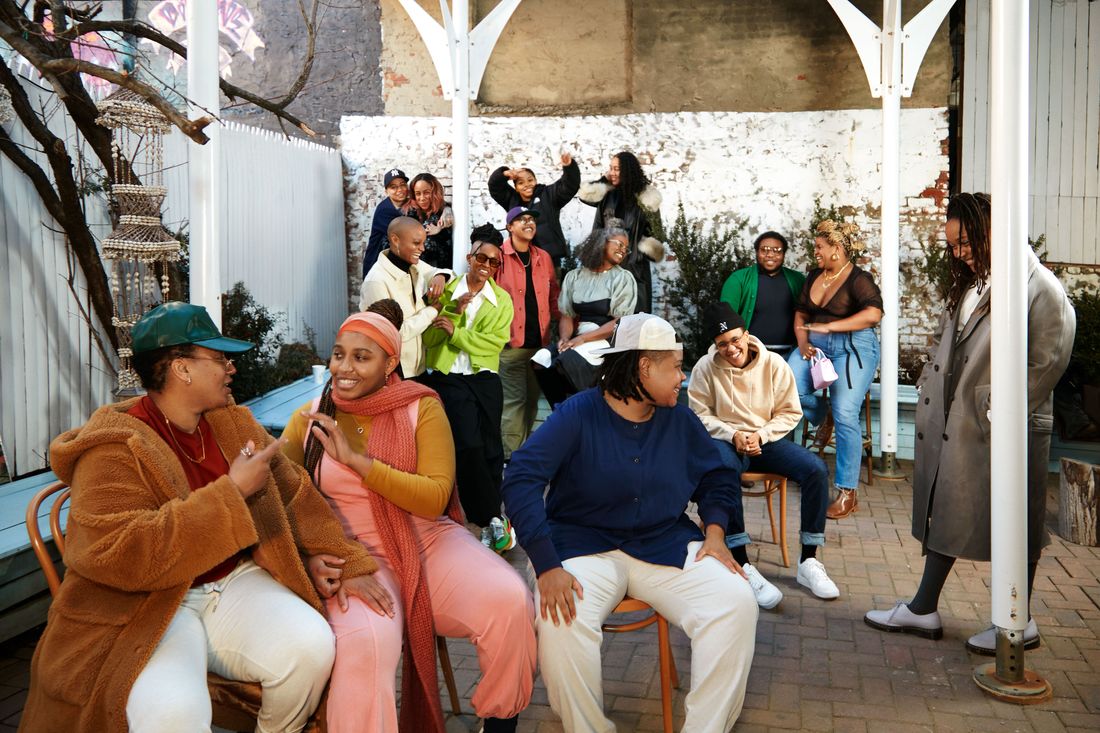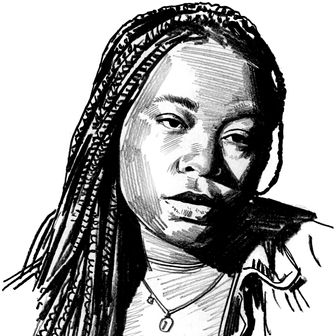
The last party that author Kimberly Drew went to before everything shut down was at Cafe Erzulie, a Haitian American restaurant in Brooklyn. In recent years, the café has become a gathering place for a subset of the borough’s Black queer scene. This was the venue that Cake Robles, a tattoo artist, and Britt Tabor, a community organizer, chose for their wedding reception. This was a spot where emcee Nappy Nina co-hosted Joy Party BK, a monthly day party that featured a rotating cast of well-dressed melanated characters. At the start of quarantine, Joy Party went online. But that soon got exhausting, especially as COVID began to rip through the community.
The Black queer scene in Brooklyn is massive and complex. “It feels like a big family, where there’s messiness involved,” says Nappy Nina. On the first warm day in March, a small group convened at Cafe Erzulie, some for the first time since the pandemic. (Upon spotting one of the café’s owners, someone exclaimed, “That’s fam!”) Connections abounded: Cake and Kiyanna Stewart, a co-owner of BLK MKT Vintage, dated the same boy in grade school. Kimberly and Aya Brown, an artist, both have tattoos done by Cake. Aya recently did a portrait of Kiyanna and her partner, Jannah Handy. Some are in the same group texts, some are dating, others are internet friends. “We have this unspoken bond where we don’t have to say anything,” says Aya. “It’s like, Oh, I know you — you were at that party with the dykes.”
At the café, a sea of effortlessly fly outfits was on display. (Telfar bags were in abundance.) “I look forward to when we can go out and see each other again. The smiles, the community. It’s not like that everywhere else,” says Nappy Nina. That day, everyone was chatting; some hadn’t crossed paths since last spring. “How do you say hello?” asks Kimberly. “I’m like, ‘I’ve seen you for a decade, but I haven’t seen you in a year.’ ”
More From This Series
- Give the Liberty Their Crown
- Pilgrimage to the Meadowlands (Taylor’s Version)
- Busking As a Family Band





